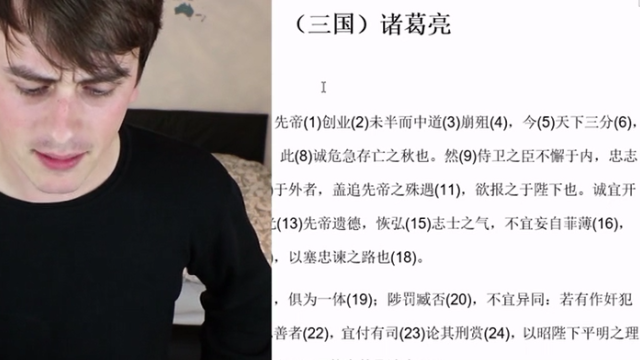经典名著《喜福会》:中国移民的美国梦
《喜福会》是1989年美国四大畅销书之一,多次获奖并拍成电影。小说描写解放前夕从中国大陆移居美国的四位女性的生活波折,以及她们与美国出生的女儿之 间的心理隔膜、感情冲撞、爱爱怨怨,令人感慨万千。
作者谭恩美(Amy Tan)是美国华裔作家。1952年出生于美国加州奥克兰,曾就读医学院,后取得语言学硕士学位。她因处女作《喜福会》而一举成名,成为当代美国的畅销作家。著有长篇小说《灶神之妻》、《灵感女孩》和为儿童创作的《月亮夫人》、《中国暹罗猫》等,作品被译成20多种文字在世界上广为流传。如今谭恩美已然成为美国文坛少数民族作家的一位代表人物,而在当今美国社会倡导多元文化的大背景下,她的地位早已渐渐超越了一位少数民族或者流行小说家的身份,而成为整个美国乃至西方最为著名的作家之一。
The Joy Luck Club (1989) is a best-selling novel written by Amy Tan. It focuses on four Chinese American immigrant families who start a club known as "the Joy Luck Club," playing the Chinese game of Mahjong for money while feasting on a variety of foods. The book is structured somewhat like a mahjong game, with four parts divided into four sections to create sixteen chapters. The three mothers and four daughters (one mother, Suyuan Woo, dies before the novel opens) share stories about their lives in the form of vignettes. Each part is preceded by a parable relating to the game.
In 1993, the novel was adapted into a feature film directed by Wayne Wang and starring Ming-Na, Lauren Tom, Tamlyn Tomita, France Nuyen, Rosalind Chao, Kieu Chinh, Tsai Chin, Lisa Lu, and Vivian Wu. The screenplay was written by the author Amy Tan along with Ronald Bass. The novel was also adapted into a play, by Susan Kim, which premiered at Pan Asian Repertory Theatre in New York.
Characters: Mothers
Suyuan Woo
During the Second Sino-Japanese War, Suyuan lives in Kweilin while her husband at the time served as an officer in Chungking (Chongqing). She starts the original Joy Luck Club with her three friends to cope with the war. There is little to eat, but they pretend it is a feast, and talk about their hopes for the future. On the day of the Japanese invasion, Suyuan leaves her house with nothing but a bag of clothes, a bag of food, and her twin baby daughters.
During the long journey, Suyuan contracts such severe dysentery that she feels certain she will die. Fearing that a dead mother would doom her babies' chances of rescue, she reluctantly and emotionally leaves her daughters under a barren tree, together with all her belongings, along with a note asking anyone who might find the babies to care for them and contact the father. Suyuan then departs, expecting to die. However, she is rescued by a truck and finds out her husband has died. She later remarries, comes to America, forms a new Joy Luck Club with three other Chinese female immigrants she met at church, and gives birth to another daughter. But her abandonment of the twin girls haunts her for the rest of her life. After many years, Suyuan learns that the twins were adopted, but dies of a brain aneurysm before she can meet them. It is her American-born daughter Jing-mei who fulfills her long-cherished wish of reuniting with her elder twin half-sisters.
As Suyuan dies before the novel begins, her history is told by Jing-mei, based on her knowledge of her mother's stories, anecdotes from her father, and what the other members of the Joy Luck Club tell her.
An-Mei Hsu
An-Mei is raised by her grandparents and other relatives during her early years in Ningbo after her widowed mother shocks the family by becoming a concubine to a middle-aged wealthy man after her first husband's death. This becomes a source of conflict for the young An-Mei, as her aunts and uncles deeply resent her mother for such a dishonorable act. They try to convince An-Mei that she is not fit to live with her disgraced mother, who is now forbidden to enter the family home. An-Mei's mother, however, still wishes to be part of her daughter's life. After An-Mei's grandmother dies, An-mei moves out to live with her mother in the home of her mother's new husband, Wu-Tsing.
An-Mei learns that her mother was coerced into being Wu-Tsing's concubine through the manipulations of his Second Wife, the favorite. This woman arranged for An-Mei's mother, still in mourning for her original husband, to be raped by Wu-Tsing. The stigma left An-Mei's mother with no choice but to marry Wu-Tsing and become his new but lowly Fourth Wife. She later lost her baby son to Second Wife, who claimed the boy as her own child to ensure her place in the household. Second Wife also tried to win over An-mei upon her arrival in Wu-Tsing's mansion, giving her a necklace made of "pearls" that her mother later revealed were actually glass beads by crushing one with her foot.
Wu-Tsing is a highly superstitious man, and Second Wife took advantage of this weakness by making false suicide attempts and threatening to haunt him as a ghost if he did not let her have her way. According to Chinese tradition, a person's soul comes back after three days to settle scores with the living. Wu-Tsing, therefore, is known to be afraid to face the ghost of an angry or scorned wife. After Second Wife faked a suicide attempt to prevent An-Mei and her mother from getting their own small house, An-Mei's mother successfully committed suicide herself. She timed her death so that her soul would be due to return on the first day of the new year, a day when all debts must be settled lest the debtor suffer great misfortune. With this in mind, Wu-Tsing promised to treat his Fourth Wife's children, including An-Mei, as if they were his very own flesh and blood by an honored First Wife. When Second Wife attempted to disrupt this, An-Mei crushed the fake pearl necklace Second Wife gave beneath her feet to show her awareness of all the deception and to symbolize her new power over Second Wife, who now fears and realizes the bad karma she brought upon herself.
An-Mei later immigrates to America, marries, and gives birth to seven children. The youngest, Bing, drowns at age four.











